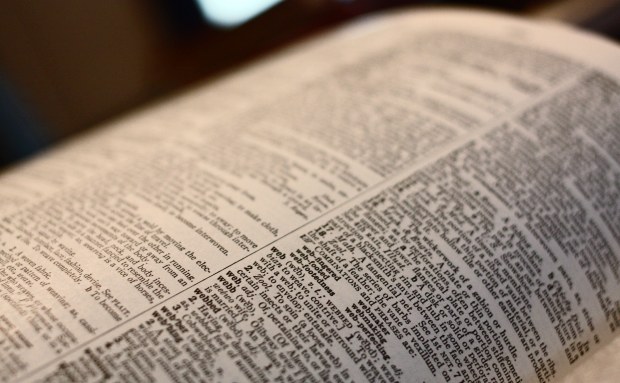
Barnes & Noble’s new Nook Color e-reader, on which our opinions at CrunchGear are divided, represents the first major application of Dictionary.com’s new API tools. They launched them late last month, and I just spoke with Dictionary.com’s President, Shravan Goli, about their approach to modernizing the centuries-old market of providing definitions.
It’s a difficult proposition, and one that is being faced by a number of free or almost-free services out there. People won’t pay to have unfamiliar words defined for them, yet here is Dictionary.com, a thriving business. It’s one of the situations on the new web where monetizing seems to result directly from authority.
I won’t go on at length here since the free-to-users business model isn’t an original one, but I think Dictionary.com’s particular variant is interesting. They have an opportunity to provide an essential and ubiquitous layer to a huge number of devices and services, and they’re being pushed from the other side, too: if they don’t succeed, a solution will emerge that obsoletes them. In constantly shifting, global markets like web and mobile, there are only the quick and the dead.
Dictionary.com’s approach is to supererogate, providing more than a simple lookup service. I asked Shravan about the threat that is community-based knowledge like Wiktionary and other free dictionary projects. Engaging the community is important, he said, but the issues of authority and trust are especially applicable to a service like Dictionary.com’s. He sees it as the final word, the definitive answer, if you will, because there needs to be such a thing.

With that kind of clout, Dictionary.com can get away with charging for the privilege of using its libraries and APIs — using a tiered structure, of course, so Big Company pays more than Little iPhone Developer. You can go to developer.dictionary.com right now and check out what’s going on with the API, but let’s be honest, the site is mainly limited to providing definitions for words. You can see the fruits of their development community in the recently-announced Nook Color, and Shravan mentioned that they were working with “a few other big guys,” which he did not elaborate on — but it isn’t hard to fill in the blanks.
I know it’s not exactly headline news, but I just think that Dictionary.com is in a fairly interesting position in the market right now: a precarious domination that requires no small amount of vigilance to maintain. Like so many services based on access to a non-exclusive body of data, they are subject to attack from ground-up projects duplicating or improving their content. It’s a dated example, but Encarta was in a similar situation in some ways, and the rise of Wikipedia erased it from the earth. If Dictionary.com doesn’t stay on top of its game, the same could happen to them. They seem to be doing fine for now, but I look forward to seeing what kinds of contortions they’ll have to do to keep their position in the future.
P.S. — If you’re at all interested in words, check out their Hot Word blog. I like a good etymology now and then.